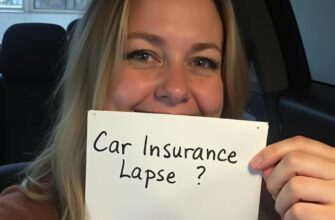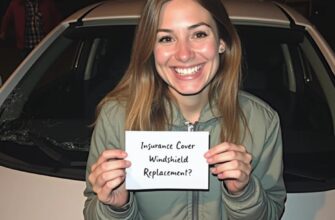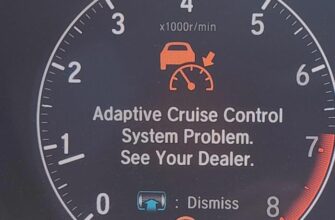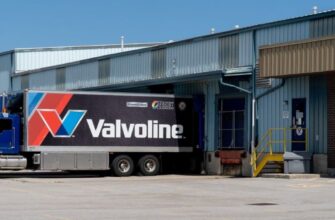It’s puzzling, isn’t it? You’re a responsible driver. You haven’t had a single accident. Your record is free of speeding tickets or violations. Yet, when that insurance renewal notice arrives, the number seems surprisingly high. You find yourself asking, “why is my insurance so high with no accidents or tickets?” You’ve done everything right behind the wheel, so what gives?
While your driving history is undoubtedly one of the most significant factors in determining your car insurance premium, it’s far from the only one. Insurance companies use a complex algorithm to assess risk, taking into account a wide array of variables that go beyond whether you’ve had a recent fender bender or a ticket.
Let’s explore these other factors that might be contributing to your high insurance costs, even if your driving record is spotless. Understanding these can help you uncover potential reasons for unexpected rate increases, like when your “car insurance doubled for no reason” or you wonder “why did my car insurance go up $100” at renewal.
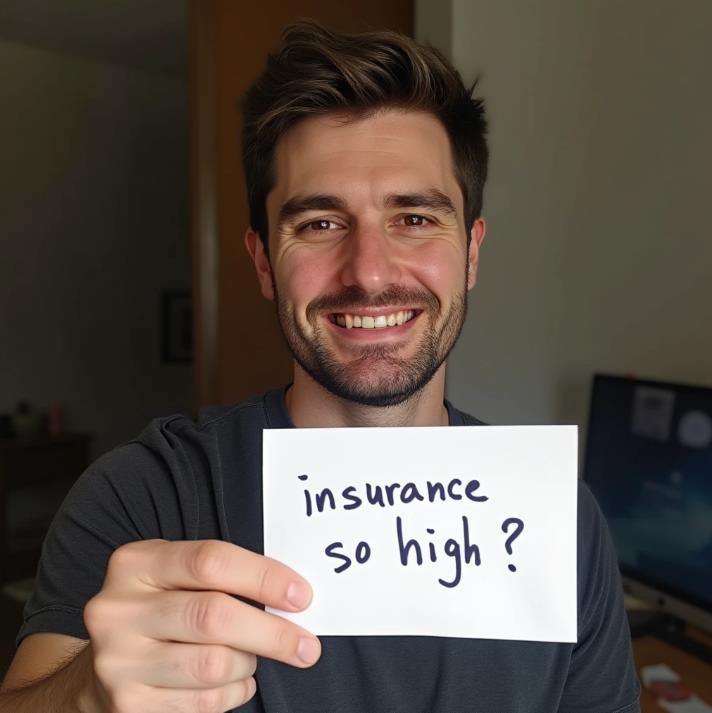
What Factors Beyond Your Driving Record Impact Rates?
Insurance companies look at a multitude of data points to predict the likelihood of you filing a claim. Here are some of the major factors that influence what affects car insurance rates the most, outside of your clean record:
- Your Location: Where you live and park your car has a huge impact. Areas with high rates of theft, vandalism, or accidents generally have higher insurance premiums. Even moving a short distance can sometimes affect your rate. Urban areas are typically more expensive than rural ones due to increased traffic density and associated risks. This addresses the question “why is my insurance so high with no accidents or tickets state” – rates vary significantly by location.
- Your Age and Driving Experience: Younger, less experienced drivers statistically pose a higher risk and pay more for insurance. Rates typically decrease as drivers gain more experience and reach their late 20s or beyond, assuming they maintain a clean record.
- The Type of Vehicle You Drive: The make, model, year, and even color of your car can affect your premium. More expensive cars cost more to repair or replace. Vehicles that are statistically more likely to be stolen or involved in accidents also have higher rates. The cost of parts and labor for repairing specific vehicles also plays a role. This helps explain “why would a car be more expensive to insure” compared to another, even for drivers with identical records.
- Coverage Levels and Deductibles: The amount and types of coverage you choose significantly impact your premium. Higher liability limits, lower deductibles for collision and comprehensive coverage, and add-ons like roadside assistance or rental car reimbursement all increase your cost. While important for financial protection, more coverage means a higher premium.
- Credit Score: In many states, your credit-based insurance score is used to help determine your premium. Studies have shown a correlation between lower credit scores and a higher likelihood of filing claims. A poor credit history can lead to substantially higher rates.
- Marital Status: Married individuals statistically tend to have fewer accidents and often receive lower insurance rates than single drivers.
- Claims History (Even Not-at-Fault or Comprehensive): While at-fault accidents have the biggest impact (explaining “how much will my insurance go up with an at-fault accident“), even comprehensive claims (like for windshield damage or hail) or not-at-fault accidents can sometimes play a role in your premium, depending on the frequency and state regulations. As we discussed previously in our guide, “Does Your Insurance Cover Windshield Replacement?” these types of claims are less impactful than at-fault ones, but a pattern can still influence rates. You might wonder, “does insurance go up when it’s not your fault?” In some cases, yes, particularly if you have multiple not-at-fault incidents or live in certain states.
- Lapse in Coverage: A gap in your insurance history signals higher risk to insurers and will almost certainly result in a higher premium. Our guide on “How Does a Lapse in Car Insurance Coverage Affect Your Rates?” explains this in detail, but even a short lapse can increase your costs significantly.
- Insurance Company and Policy Changes: Insurance companies adjust their rates periodically based on their overall risk pool, operating costs, and market conditions. Sometimes, your rate might increase at renewal simply due to these company-wide adjustments, even if nothing about your personal profile has changed. Your premium might go up every six months because companies often offer 6-month policies, and rates are re-evaluated at each renewal period. Switching insurers or changing your policy details can also impact the rate.
“I hadn’t had a ticket or accident in 10 years, but my insurance still went up at renewal. Carlos, 55, I called my agent, and he explained that rates had increased in my ZIP code because of a rise in local theft reports. It wasn’t about my driving, but about where I live.” – A driver discovering geographic rating factors.
Why Might Rates Seem High Despite a Clean Record?
Sometimes, the issue isn’t necessarily that your rate is “high” for you, given all the rating factors, but that it increased unexpectedly. If your “car insurance doubled for no reason” or jumped significantly, consider these possibilities:
- Rate Adjustments by the Insurer: As mentioned, companies raise rates.
- Loss of Discounts: Did a discount expire? (e.g., good student discount ending, multi-car discount changing).
- Changes to Your Policy: Were coverage levels or deductibles accidentally changed?
- Changes in Your Household: Did a new driver get added? Did someone in your household get a ticket or have an accident?
If you’re venting on platforms like Reddit, saying “my car insurance is too high after accident” or “my car insurance is too high with a clean record reddit,” remember that while others might share experiences, the specifics of your situation and policy are unique.
What to Do If Your Insurance Feels Too High
If you feel your insurance premium is too high, even with a clean record, don’t just accept it. You have options:
- Review Your Policy: Understand exactly what coverage you have and your deductibles. Make sure there are no errors in the information the insurer has about you or your vehicle.
- Ask Your Insurer for an Explanation: Contact your agent or the company directly and ask them to explain why your rate is what it is, especially if it increased.
- Inquire About Discounts: Ask if there are any discounts you’re not currently receiving.
- Shop Around and Compare Quotes: This is the most effective way to ensure you’re getting the best possible rate. Get quotes from multiple different insurance companies. Rates can vary significantly between insurers for the exact same coverage, even for drivers with perfect records. Our guide on getting the best auto insurance coverage at the lowest price is a must-read.
- Consider Adjusting Coverage (Carefully): While not always recommended, you could explore increasing your deductibles or reducing certain optional coverages if you’re comfortable with the increased out-of-pocket risk.
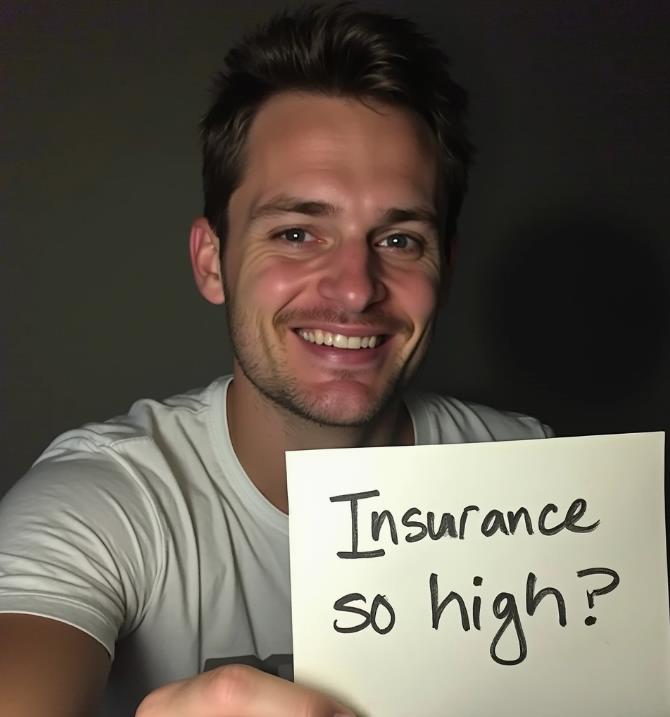
Frequently Asked Questions (FAQ)
Q: Why is my insurance so high with no accidents or tickets?
A: Your rate is influenced by many factors beyond your driving record, including your location, age, vehicle type, coverage levels, credit score, and the overall claims experience of other drivers insured by your company.
Q: What affects car insurance rates the most?
A: Your driving record (accidents, violations), your claim history (both at-fault and comprehensive), your age and experience, and your location are typically among the biggest factors impacting your premium.
Q: Does insurance go up when it’s not your fault?
A: It can, but it’s less likely and usually to a lesser extent than an at-fault accident. Factors like state laws, the frequency of not-at-fault claims, and your specific insurer’s policies can influence this.
Q: Why might my car insurance doubled for no reason?
A: Significant increases often happen due to rate adjustments by the insurance company, loss of discounts, changes in your policy or household information, or a recent lapse in coverage.
Q: How long does a lapse in car insurance stay on your record for rating purposes?
A: A lapse in coverage can negatively impact your rates for typically 3 to 5 years.
Conclusion
If you’re asking “why is my insurance so high with no accidents or tickets,” remember that insurance rates are calculated based on a wide range of risk factors, not just your clean driving record. Your location, age, vehicle, coverage choices, and even credit score play significant roles. Understanding what affects car insurance rates the most helps demystify your premium. While it’s frustrating when your rate seems high despite safe driving, you have the power to manage your costs. Regularly reviewing your policy, asking your insurer questions, and critically, shopping around and comparing quotes from different companies is the most effective strategy to ensure you’re paying the most competitive rate for your coverage. Don’t just wonder; take action to understand and potentially lower your insurance costs.

